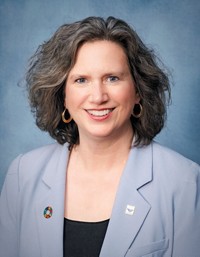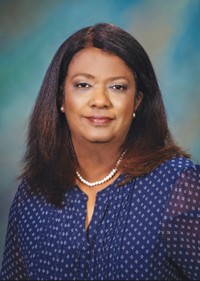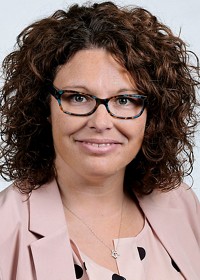Advertisement
Grab your lab coat. Let's get started
Welcome!
Welcome!
Create an account below to get 6 C&EN articles per month, receive newsletters and more - all free.
It seems this is your first time logging in online. Please enter the following information to continue.
As an ACS member you automatically get access to this site. All we need is few more details to create your reading experience.
Not you? Sign in with a different account.
Not you? Sign in with a different account.
ERROR 1
ERROR 1
ERROR 2
ERROR 2
ERROR 2
ERROR 2
ERROR 2
Password and Confirm password must match.
If you have an ACS member number, please enter it here so we can link this account to your membership. (optional)
ERROR 2
ACS values your privacy. By submitting your information, you are gaining access to C&EN and subscribing to our weekly newsletter. We use the information you provide to make your reading experience better, and we will never sell your data to third party members.
Comment
Committee on Minority Affairs: Advancing the chemical enterprise through the inclusion of underrepresented groups
by Kishore K. Bagga, Chair, ACS Committee on Minority Affairs
February 20, 2021
| A version of this story appeared in
Volume 99, Issue 6

Since its inception in 1993, the American Chemical Society Committee on Minority Affairs (CMA) has worked to help increase the proportion of underrepresented groups in the chemical sciences and help those groups feel included in the society.
For example, CMA oversees and supports awards and recognition for underrepresented groups. These include the Stanley C. Israel Regional Award for Advancing Diversity in the Chemical Sciencesand the ChemLuminary Award for Best Overall Local Section Minority Affairs Committee. CMA has also nominated members for the prestigious ACS Fellows program and administers travel awards to support students from underrepresented groups in attending ACS meetings. In addition, CMA oversees the ACS Scholars and Project SEED programs. The ACS Scholars Program provides scholarships to students from underrepresented groups who are majoring in chemistry-related fields. The Project SEED program provides summer research experiences for high school students from economically disadvantaged backgrounds.
At ACS’s national and regional meetings, CMA provides diverse representation through its symposia, webinars, panel discussions, speed networking events for students, and CMA luncheons with eminent guest speakers. We have organized a number of symposia where recipients of the Stanley C. Israel Award presented on the research for which they were being recognized. CMA’s programming at national meetings has often been conducted with a cosponsor such as the Women Chemists Committee or the Division of Medicinal Chemistry. The committee has also been involved in leadership development workshops, which provide our members with skills that can help them transition into future leadership roles.
Committee members work together during national meetings, as well as by communicating throughout the year, to make sure we reach our strategic goals, discuss the needs of our committee, and develop action plans for the future. Our committee members are volunteers from different geographical regions. They may be in academia, industry, or the private sector, yet they all share the same passion for ACS and for our community and are committed to success through diverse representation.
The above activities, as well as other goals we work toward, allow us to promote the committee’s vision and mission. Our vision is to “diversify chemistry through the transforming power of inclusion and equity.” Our mission is to “advance a broader, inclusive and equitable chemistry enterprise by empowering underrepresented groups, stakeholders, and marginalized peoples for the benefit of the world.” This mission aligns with ACS’s mission, which is to “advance the broader chemistry enterprise and its practitioners for the benefit of Earth and its people.” Chemistry is for everyone and should be inclusive and available for all people.
With our mission and vision providing a framework—and with a passionate, forward-thinking outlook—we continue to work on activities that will help increase the representation of underrepresented groups in the chemical sciences. During the virtual ACS Spring 2021 meeting, CMA will be sponsoring a symposium titled “Can You Hear Us Now? Black Chemists in the Workplace,” in which invited speakers will share their experiences with racial injustices in the workplace and share approaches that employers can take to improve the overall climate in professional settings. Besides this panel symposium, we will be holding other symposia and poster sessions. Be on the lookout for these in the meeting program. I invite you to attend one of our events.
I encourage you to reflect on whether there is a member of your community from an underrepresented group you feel should be recognized and ask your local section to nominate that member for an award, such as the Stanley C. Israel Award. Also consider if there is an ACS Scholar or Project SEED student you can mentor.
These are just a few suggestions on how to get involved and have your voice be heard. Please visit the Committee on Minority Affairs website, chemdiversity.org, for more information on who we are and what we do and to learn about our recent activities. Please feel free to email me at chemdiversity@gmail.com if you have any feedback or suggestions.
Views expressed are those of the author and not necessarily those of C&EN or ACS.





Join the conversation
Contact the reporter
Submit a Letter to the Editor for publication
Engage with us on Twitter